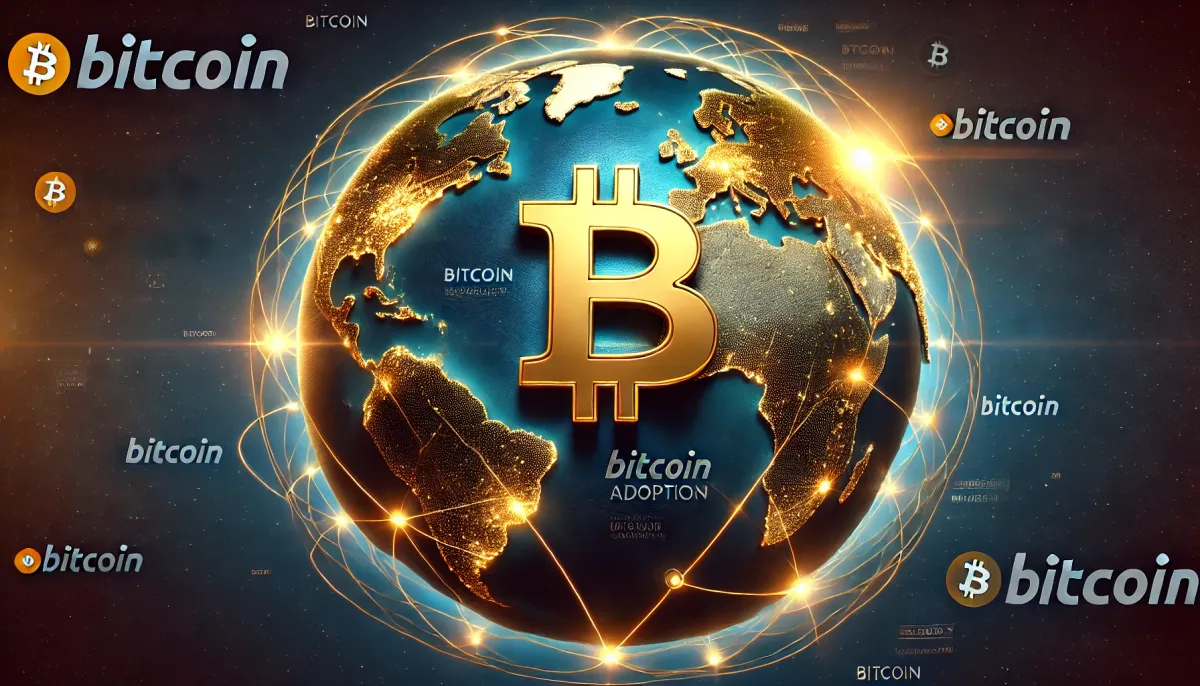Bitcoin as Digital Capital: Michael Saylor’s Vision for a $500 Trillion Economy
The November 14, 2024, podcast from MicroStrategy features Michael Saylor’s recent Cantor Fitzgerald conference talk, where he explores Bitcoin's transformative role in global capital markets and the broader economic implications of its adoption.

- My 'briefing notes' summarize the content of podcast episodes; they do not reflect my own views.
- They contain (1) a summary of podcast content, (2) potential information gaps, and (3) some speculative views on wider implications.
- Pay attention to broadcast dates (I often summarize older episodes)
- Some episodes I summarize may be sponsored: don't trust, verify, if the information you are looking for is to be used for decision-making.
Summary
The November 14, 2024 podcast from MicroStrategy features Michael Saylor’s recent talk at the recent Cantor Fitzgerald conference in Miami. His presentation underscores Bitcoin’s transformative potential as digital capital, offering unmatched capabilities for preserving wealth, addressing systemic inefficiencies, and positioning the U.S. for economic leadership. By advocating for a Strategic Bitcoin Reserve and the tokenization of financial assets, Saylor presents a roadmap for unlocking a $500 trillion digital asset economy. His insights provide actionable guidance for policymakers, investors, and institutions navigating this paradigm shift.
Take-Home Messages
- Bitcoin’s Performance Advantage: Bitcoin consistently outperforms traditional assets, making it an ideal store of value for long-term capital preservation.
- Strategic Bitcoin Reserve: U.S. adoption of a Bitcoin reserve can stabilize national debt and attract global capital, ensuring economic leadership.
- Tokenization Opportunity: The tokenization of equity, bonds, and real estate could unlock trillions in untapped capital and democratize access to financial systems.
- Regulatory Action: Clear frameworks for digital assets are critical to fostering innovation and enabling widespread institutional adoption.
- Geopolitical Implications: Bitcoin’s adoption presents a strategic opportunity for the U.S. to maintain global dominance while attracting wealth from less stable economies.
Overview
Michael Saylor’s presentation identifies inflation and entropy as critical challenges to traditional asset preservation. He argues that Bitcoin’s digital nature makes it uniquely suited for long-term capital preservation, outperforming traditional instruments like gold, bonds, and real estate. He positions Bitcoin as the ultimate low-correlation, high-return asset for institutional portfolios.
Saylor’s proposal for a U.S. Strategic Bitcoin Reserve is a central theme. He explains how such an initiative could address national debt while solidifying the U.S. dollar’s primacy. By attracting global wealth, Bitcoin adoption could ensure U.S. economic dominance for decades. He frames this as a low-risk, high-reward strategy with asymmetric benefits.
His talk extends to inefficiencies in traditional capital markets. Saylor critiques their exclusionary structures and advocates for tokenizing financial assets to unlock $500 trillion in global capital. This transformation could democratize access and replace antiquated systems with faster, more inclusive digital markets.
Concluding, Saylor envisions Bitcoin as the cornerstone of a 21st-century digital economy. He emphasizes that immediate regulatory action is essential to enable these opportunities and warns of the risks posed by inaction.
Stakeholder Perspectives
- Institutional Investors: Bitcoin’s performance and low correlation make it attractive, but regulatory clarity is needed for broader adoption.
- Policymakers: A Strategic Bitcoin Reserve could stabilize debt and cement economic leadership but requires careful risk management.
- Technology Developers: Innovations in blockchain infrastructure are essential to support the secure integration of tokenized markets.
- Small Businesses: Tokenized markets could provide unprecedented access to capital, addressing barriers in traditional systems.
- Global Economies: Competing nations view Bitcoin adoption as an opportunity to challenge U.S. dominance, necessitating swift action.
Implications
Michael Saylor’s insights highlight Bitcoin’s potential to address systemic inefficiencies in global finance. A Strategic Bitcoin Reserve could stabilize U.S. debt, attract global wealth, and ensure long-term economic leadership. Policymakers must act quickly to establish regulatory clarity, enabling these opportunities.
The tokenization of financial assets promises to democratize access to capital markets, unlocking trillions in global value. However, realizing this vision requires advancements in technology and robust security measures. Failure to act could allow other nations to seize leadership in the digital economy.
Future Outlook
The future of Bitcoin lies in its integration into global financial systems. A U.S. Strategic Bitcoin Reserve could catalyze this transformation, stabilizing the economy and securing a competitive edge. Swift regulatory action is vital to ensure Bitcoin’s role as the backbone of a new digital economy.
The tokenization of capital assets will redefine global finance, enabling faster, more inclusive markets. To achieve this, policymakers and technology developers must address challenges in scalability and security. The U.S. has a limited window to lead this transition and shape the future of global economic systems.
Information Gaps
- How can regulatory frameworks for digital assets be structured to encourage institutional adoption while ensuring consumer protection? Regulatory clarity is essential for scaling Bitcoin adoption and mitigating risks. This question explores how balanced policies can unlock growth while safeguarding participants.
- What are the geopolitical implications of nations adopting Bitcoin as a reserve asset, and how might this reshape global economic power dynamics? Bitcoin’s potential to attract global wealth could redefine power structures. Addressing this question provides insight into future economic and political alignments.
- What are the most effective strategies for mitigating Bitcoin’s market liquidity challenges as institutional interest grows? Liquidity constraints risk limiting Bitcoin's adoption. Researching solutions is vital to ensuring scalability and stability in a growing market.
- How can tokenized capital markets democratize access to global financial systems, particularly for small businesses and underrepresented populations? Tokenization has the potential to revolutionize financial inclusivity. Exploring this can uncover pathways for broader access to capital and economic participation.
- What technological innovations are required to support the secure and scalable integration of tokenized assets into existing financial systems? Infrastructure challenges remain a bottleneck. Understanding necessary innovations is key to realizing Bitcoin’s potential in global markets.
Broader Implications for Bitcoin
Transforming Global Capital Markets
Bitcoin’s ability to serve as digital capital redefines global financial systems, replacing traditional asset structures with decentralized, tokenized alternatives. This shift could unlock trillions of dollars in untapped value, creating more efficient and inclusive markets. By reducing reliance on intermediaries, Bitcoin and tokenization lower barriers to participation, empowering individuals and small businesses worldwide.
Geopolitical and Economic Realignment
Adopting Bitcoin as a reserve asset positions nations to attract global wealth, reshaping economic power dynamics. The U.S., through a Strategic Bitcoin Reserve, can secure its economic dominance while countering inflation and systemic risks. However, other nations accelerating their adoption risk creating a competitive global race for Bitcoin reserves and associated capital flows.
Regulatory Challenges and Opportunities
Clarity in digital asset regulation is essential to foster innovation and protect investors. Countries that implement balanced frameworks will lead in attracting institutional investments and driving economic growth. Failure to regulate effectively risks stifling progress and ceding leadership to more agile economies.
Long-Term Wealth Preservation
Bitcoin’s structural advantages over physical and financial assets make it the ultimate tool for long-term wealth preservation. Its resistance to inflation and entropy addresses systemic challenges that traditional assets cannot solve. This paradigm shift ensures individuals and institutions can secure their capital for generations.
Advancing Technological Infrastructure
The tokenization of assets demands robust blockchain technology capable of supporting high volumes and securing digital transactions. Investment in scalable and secure platforms is critical to integrating Bitcoin into existing financial systems. These advancements will enable widespread adoption and position Bitcoin at the center of a digitally-driven economy.



Comments ()